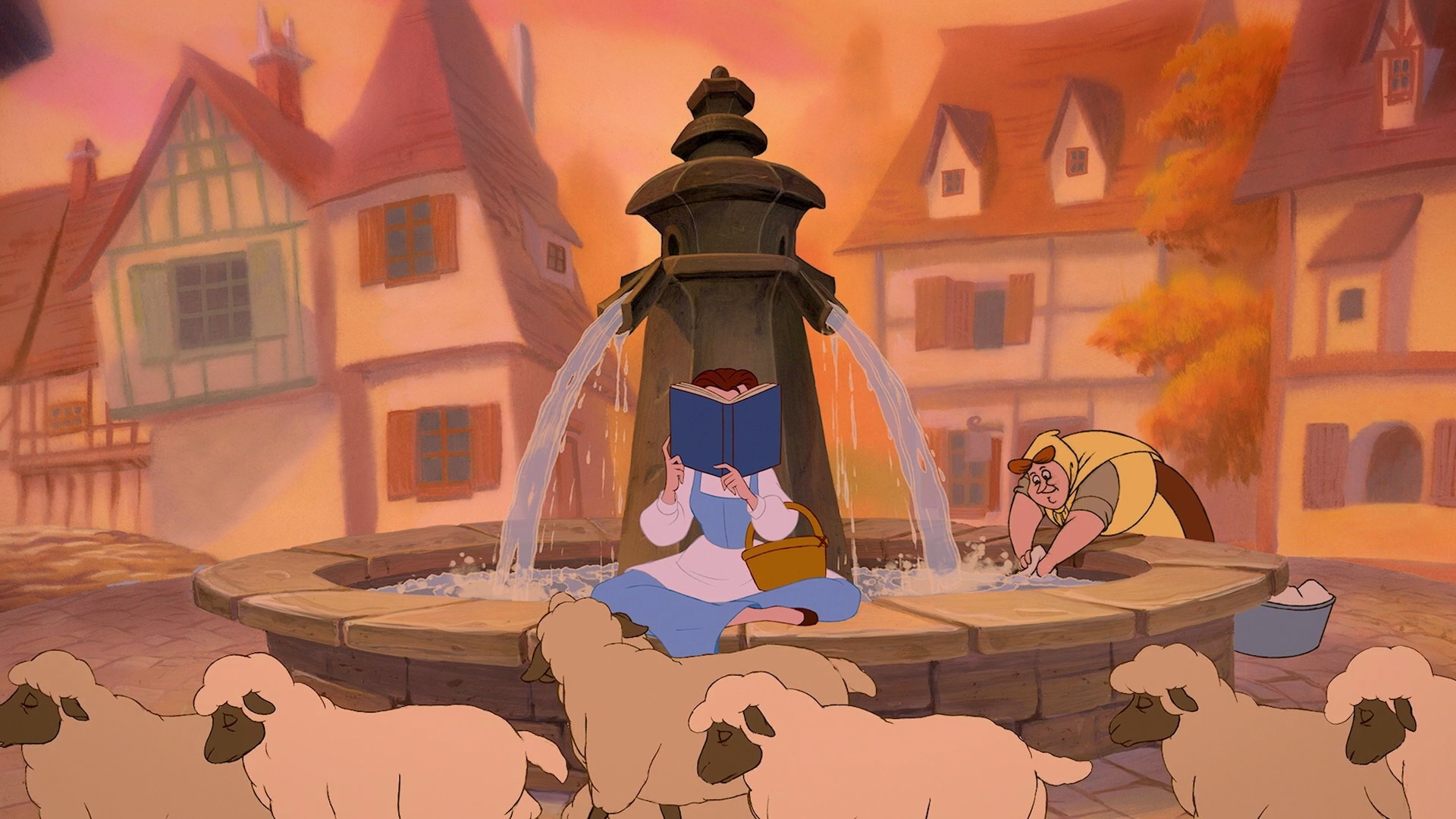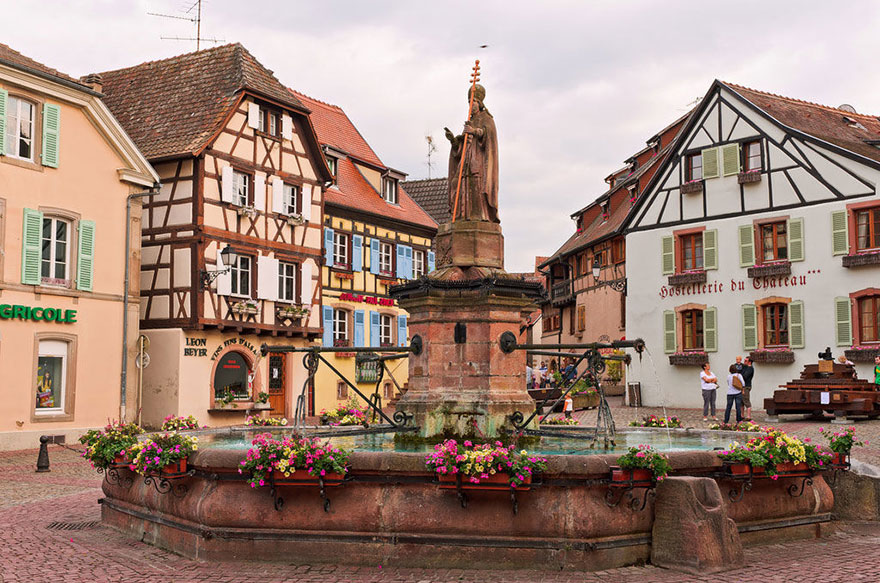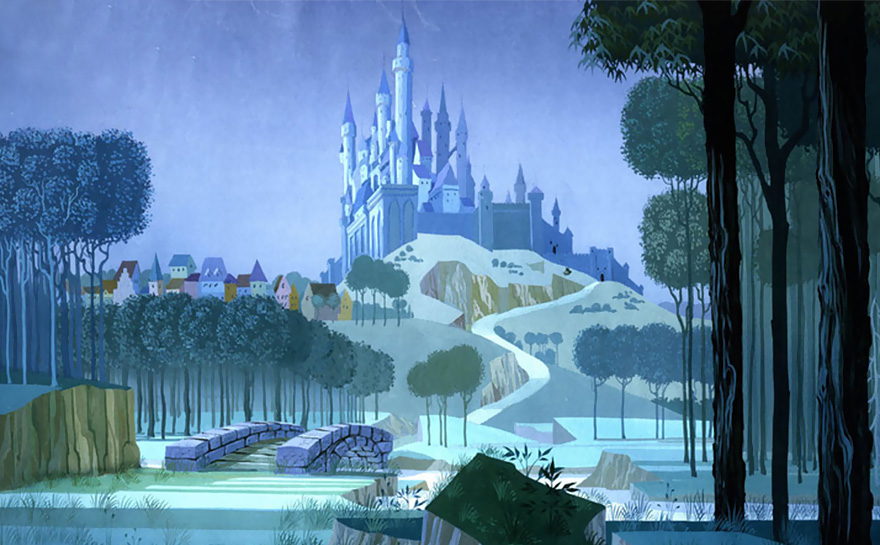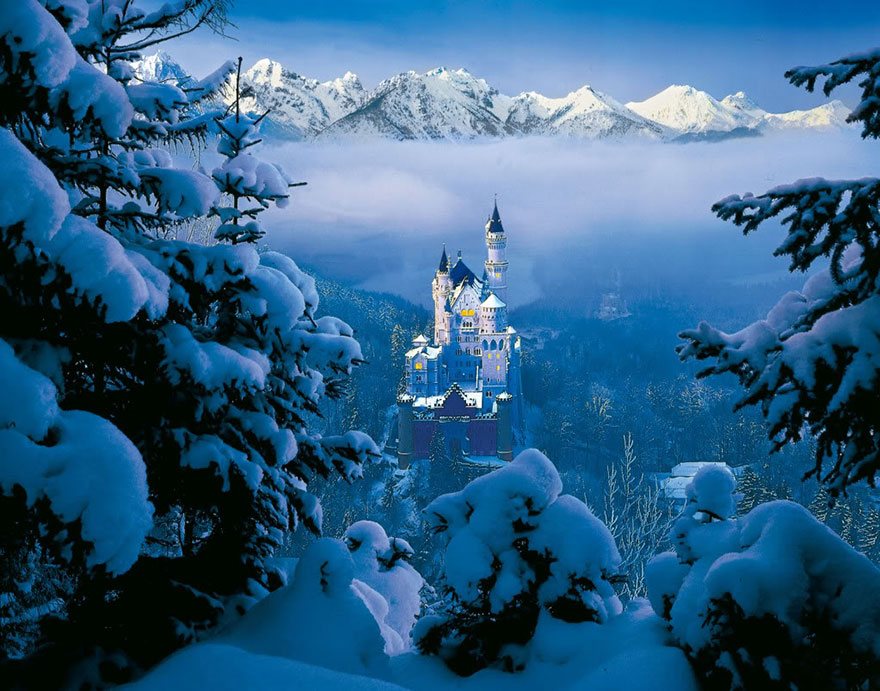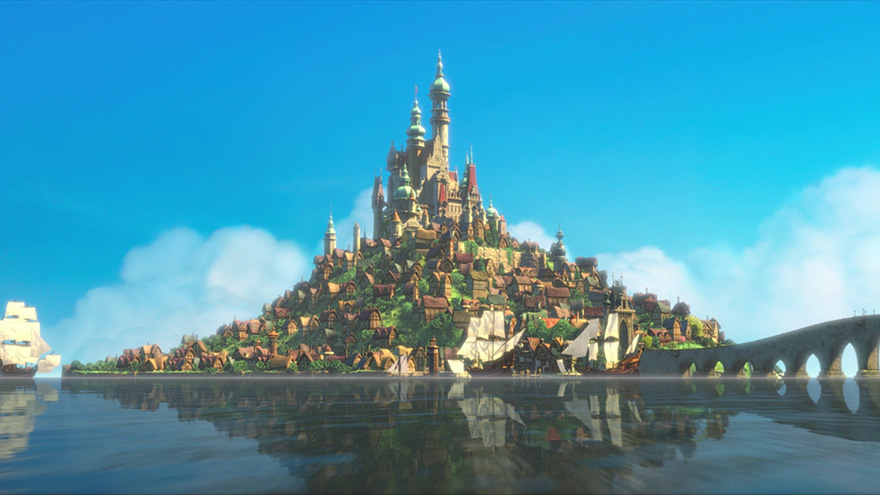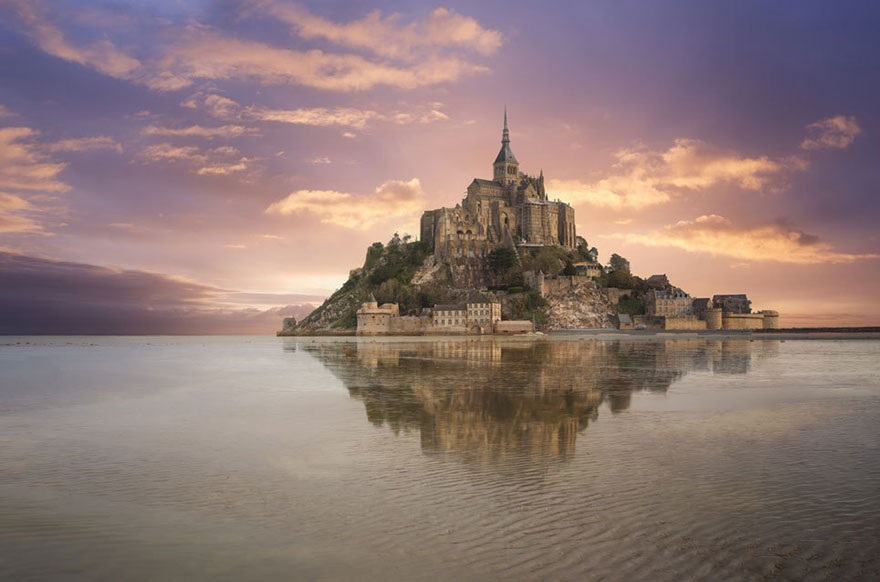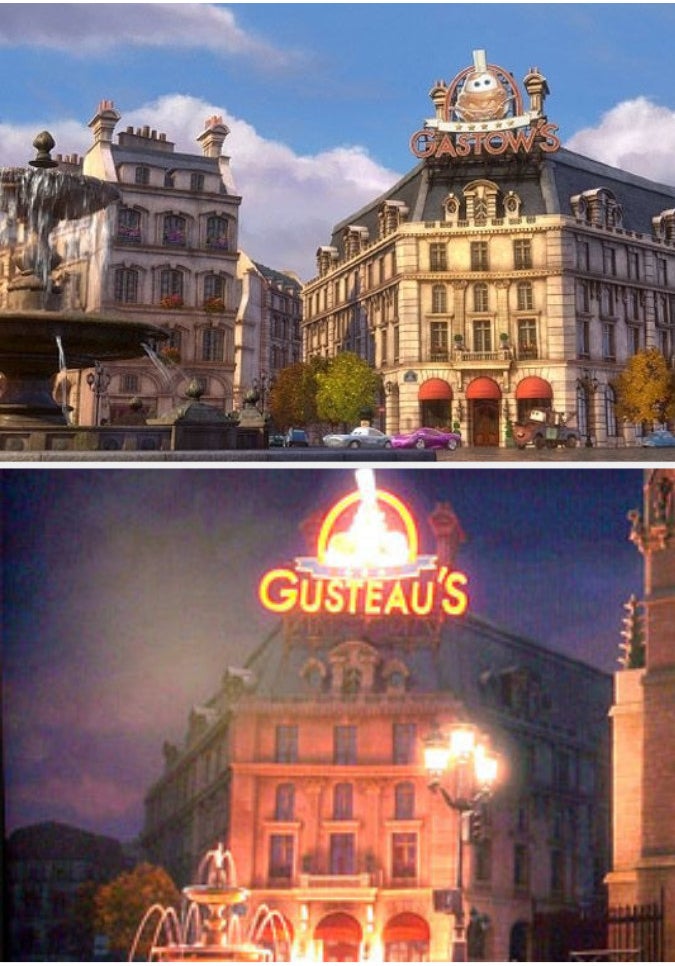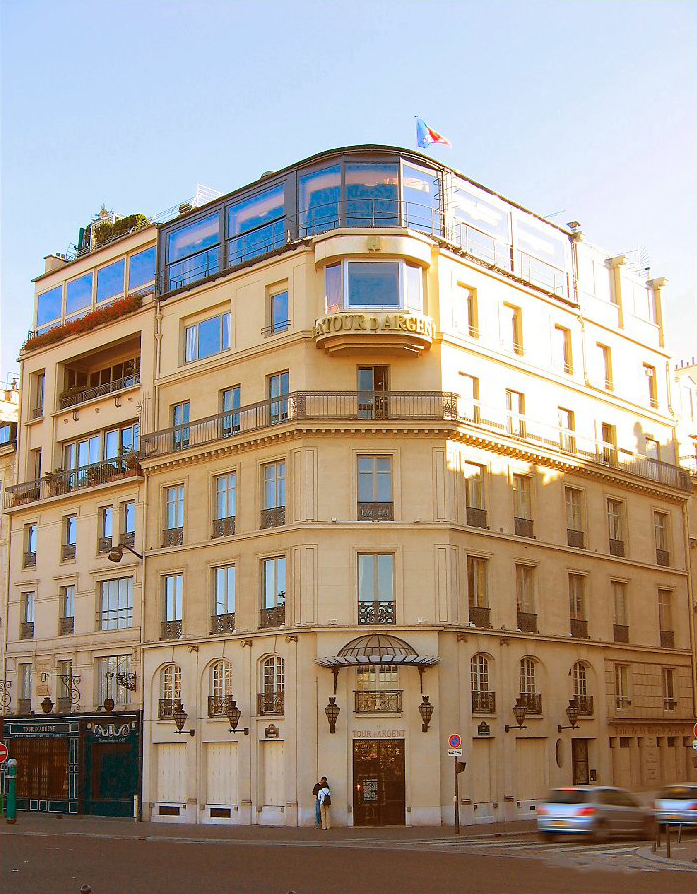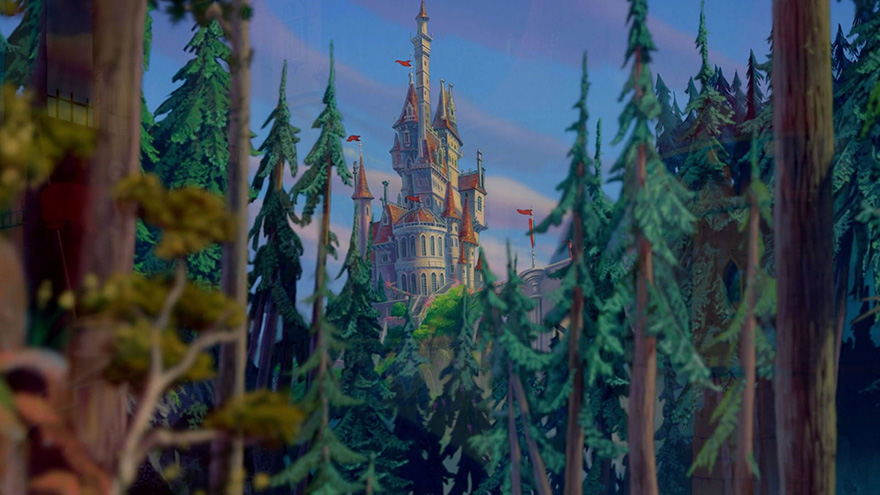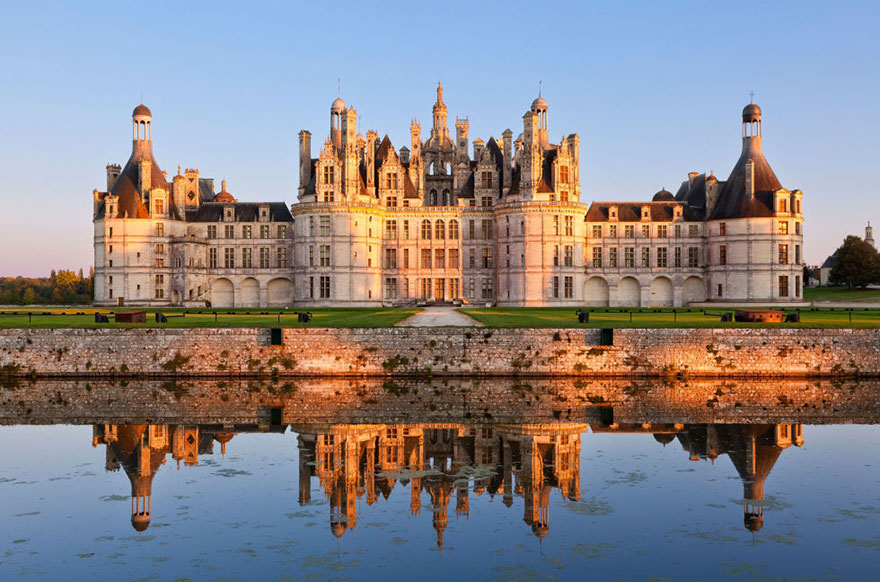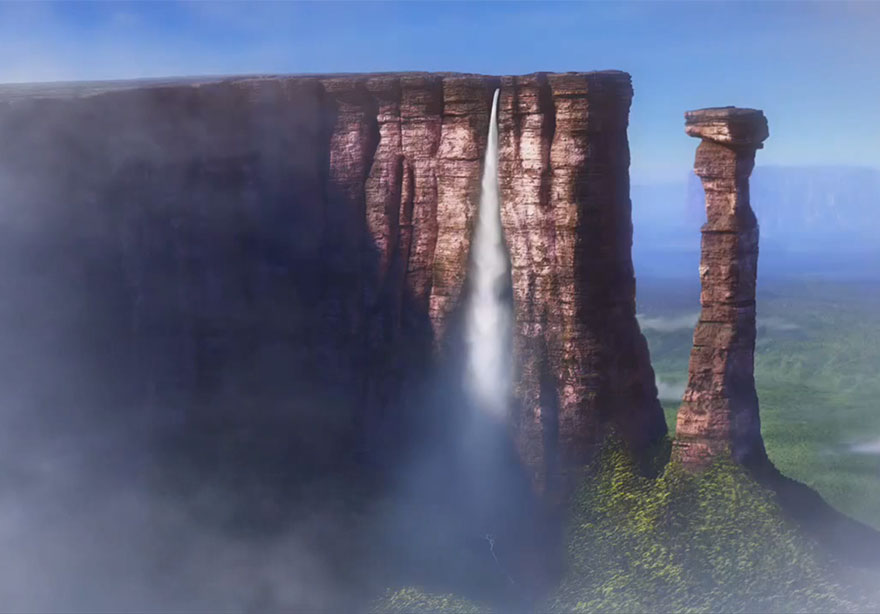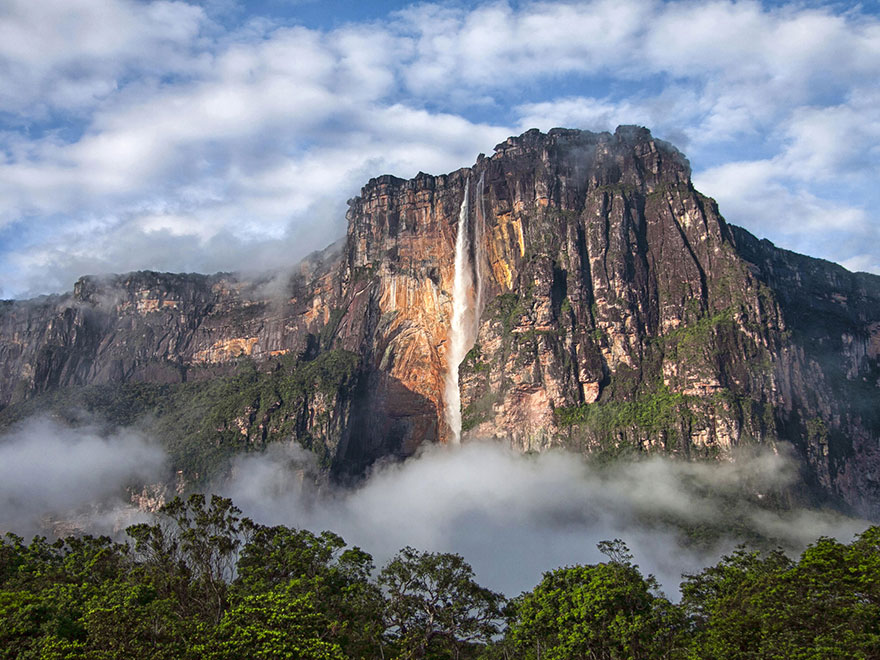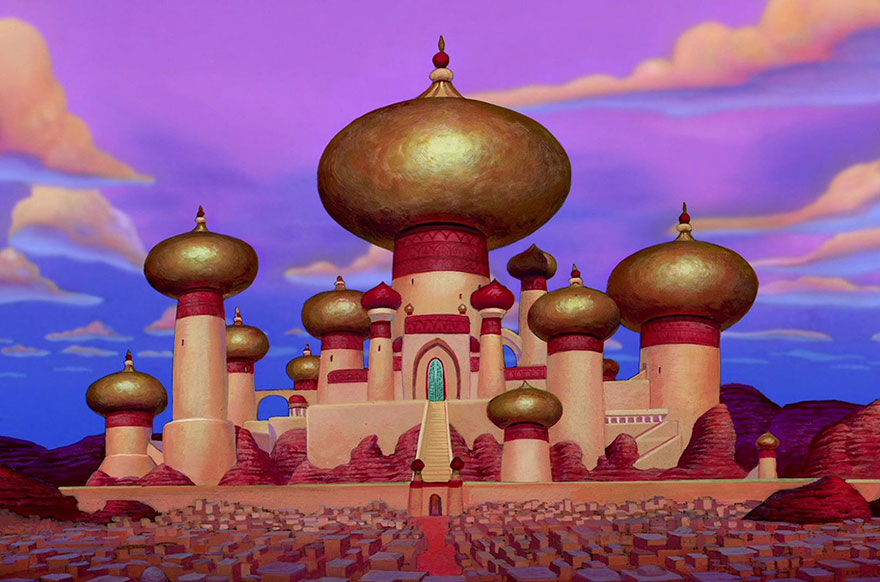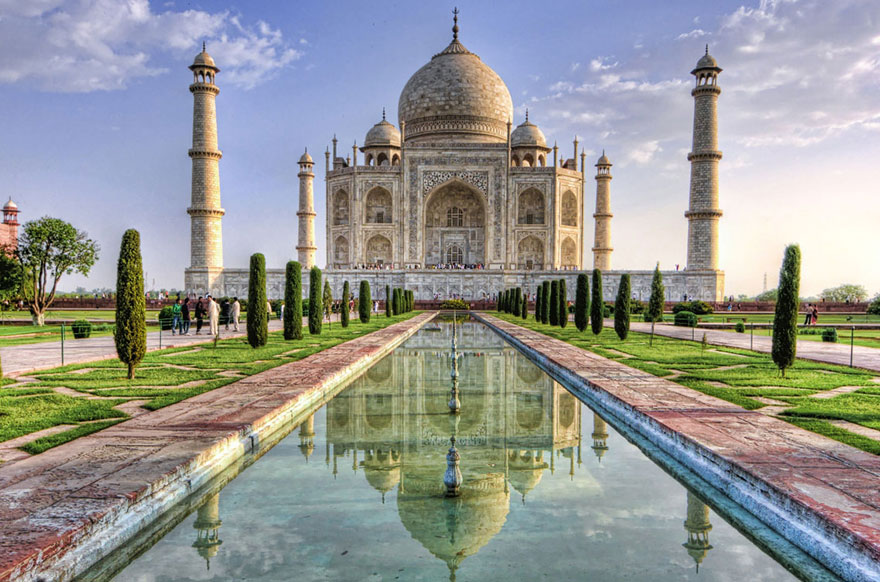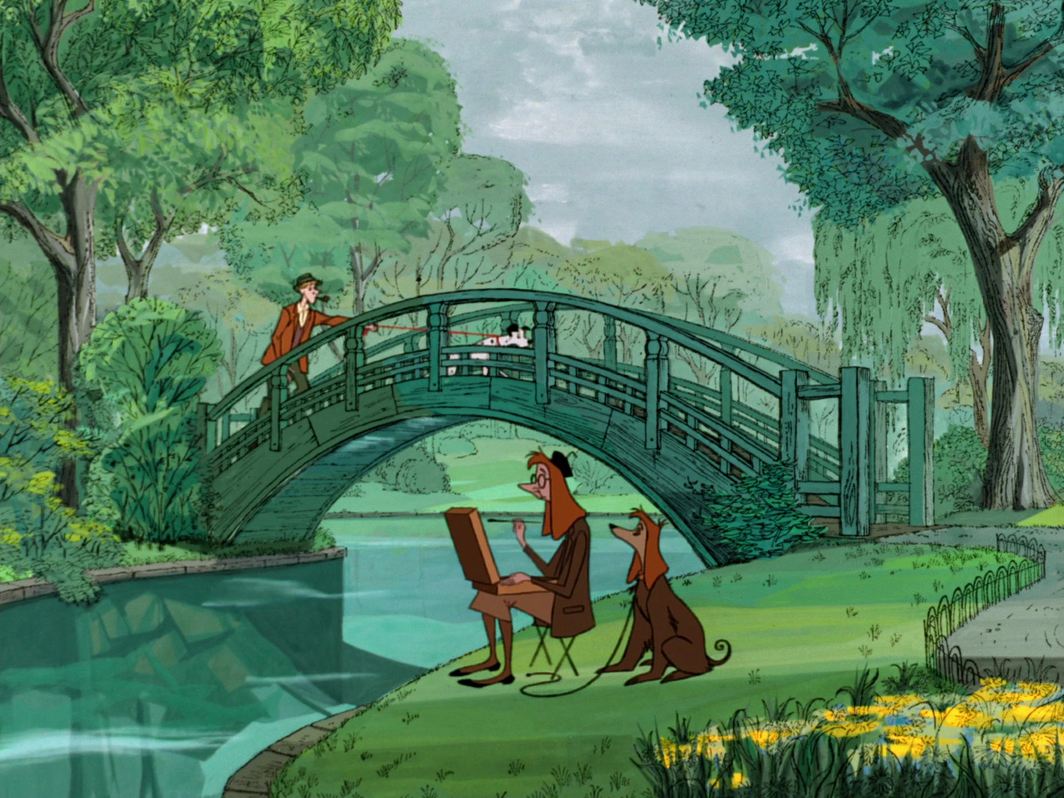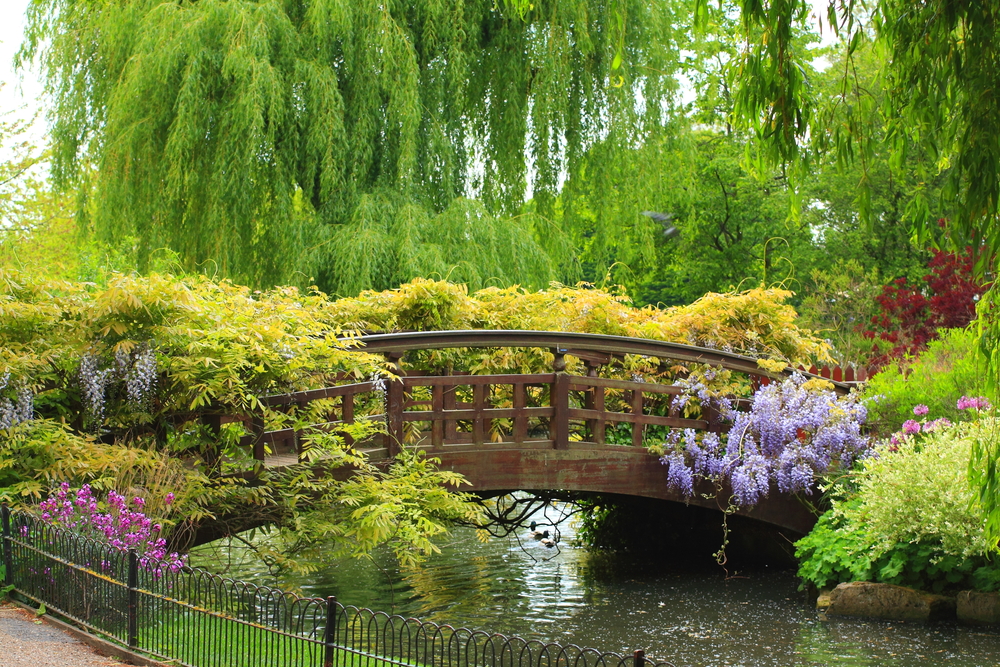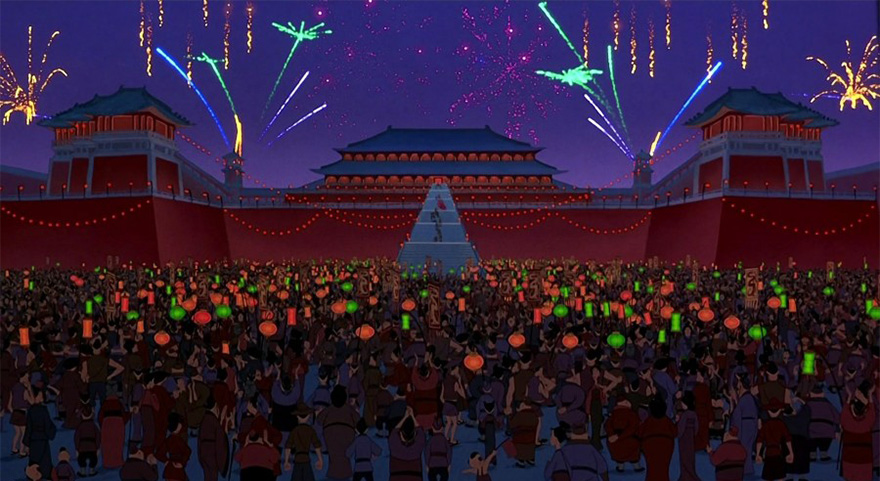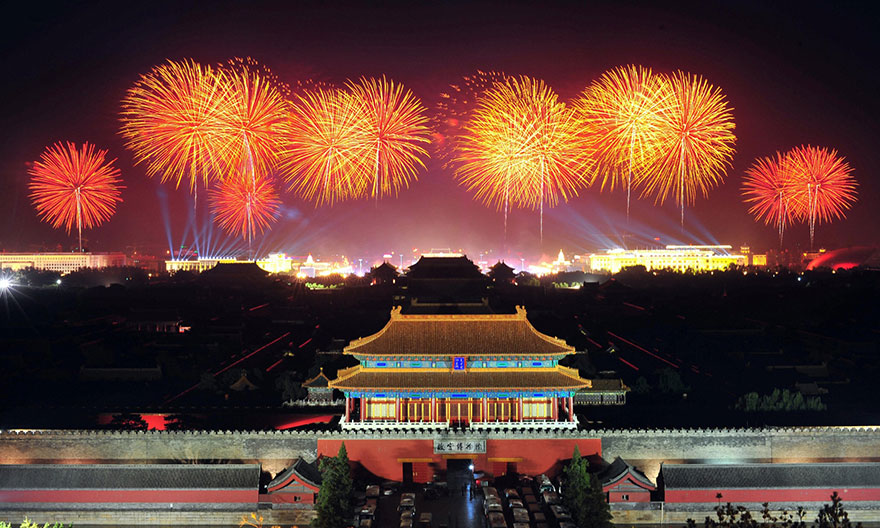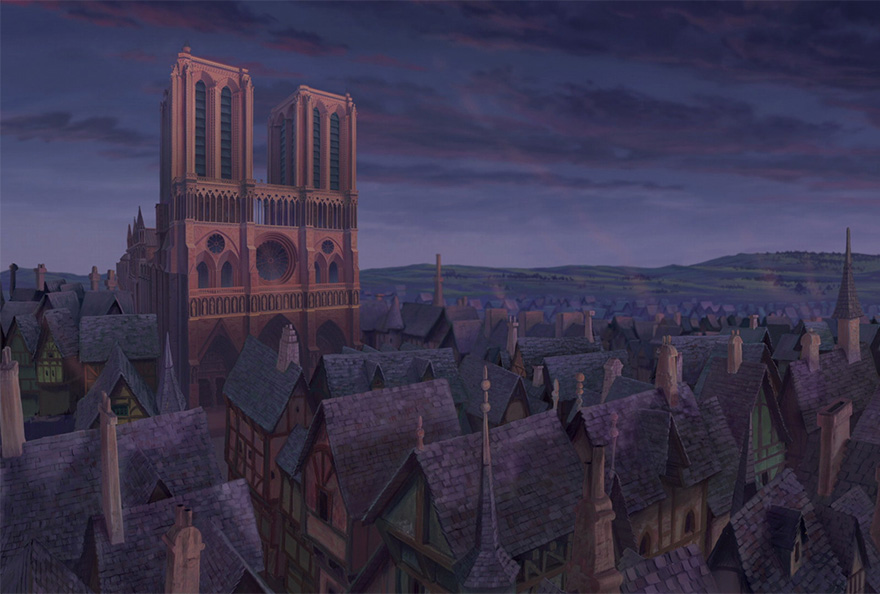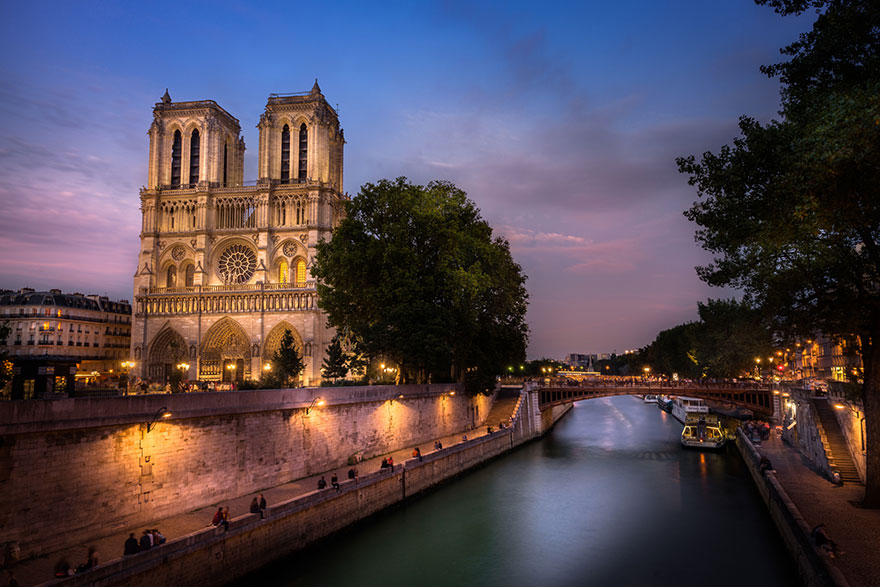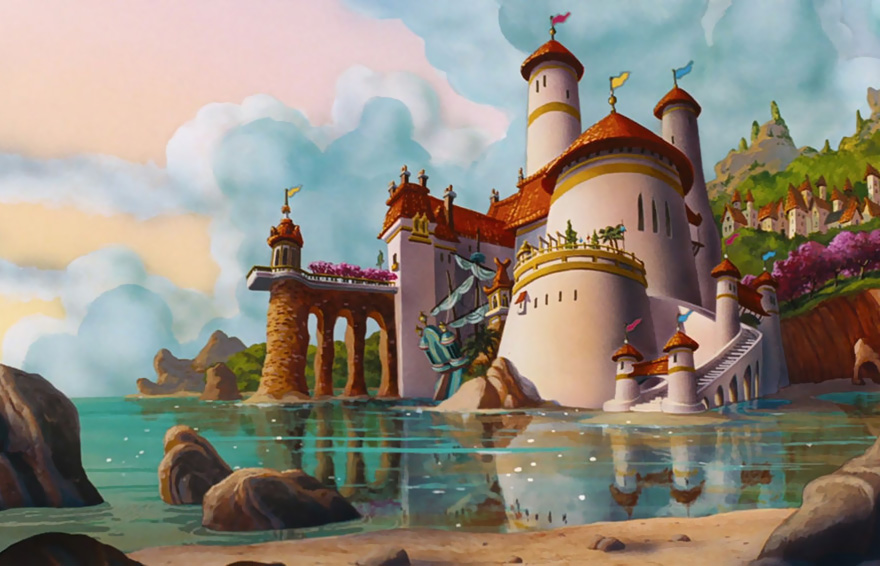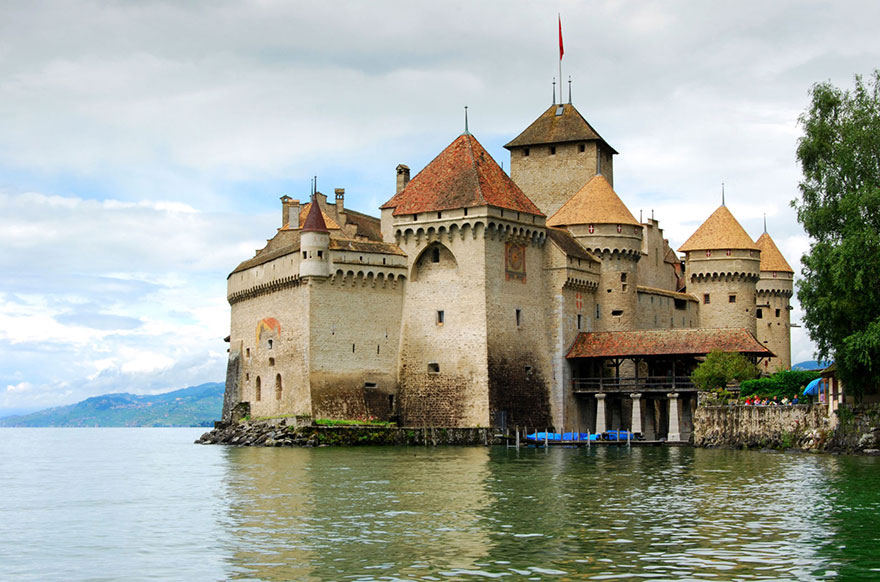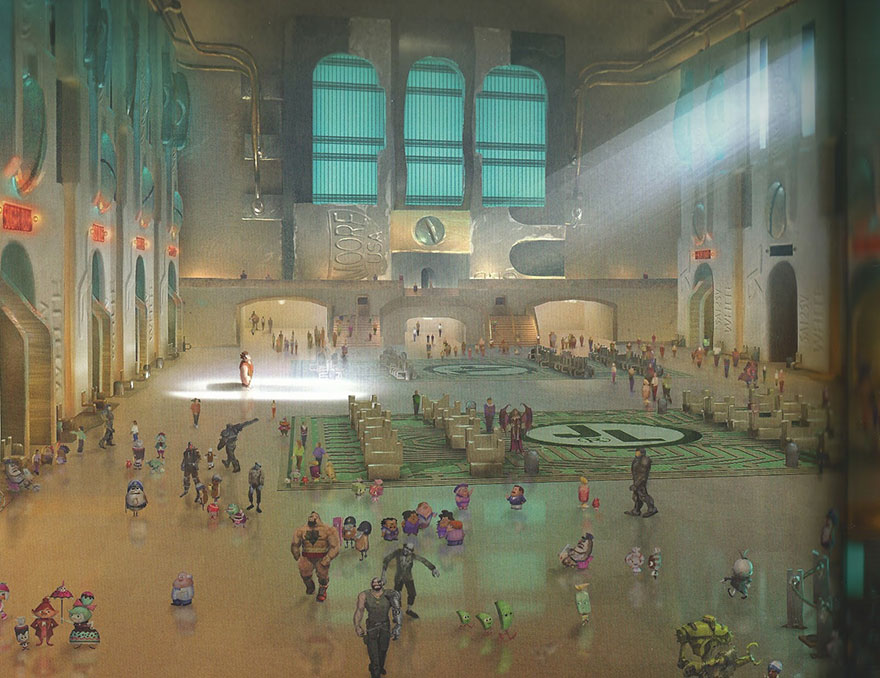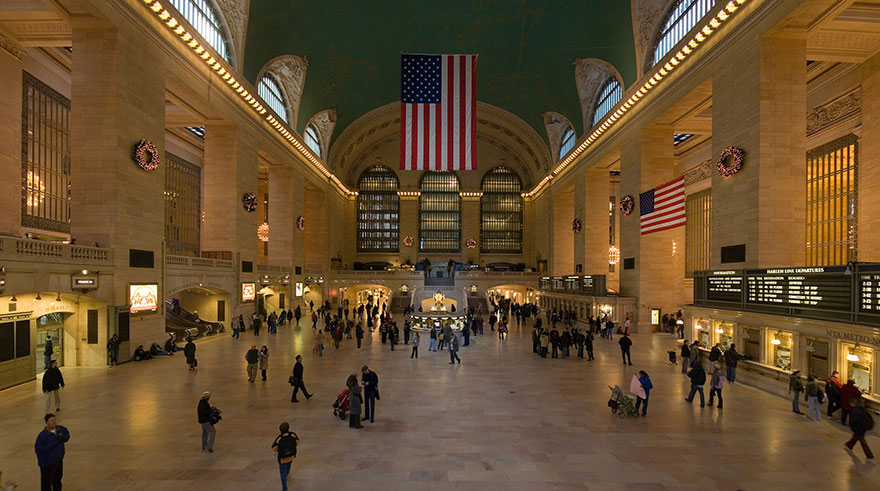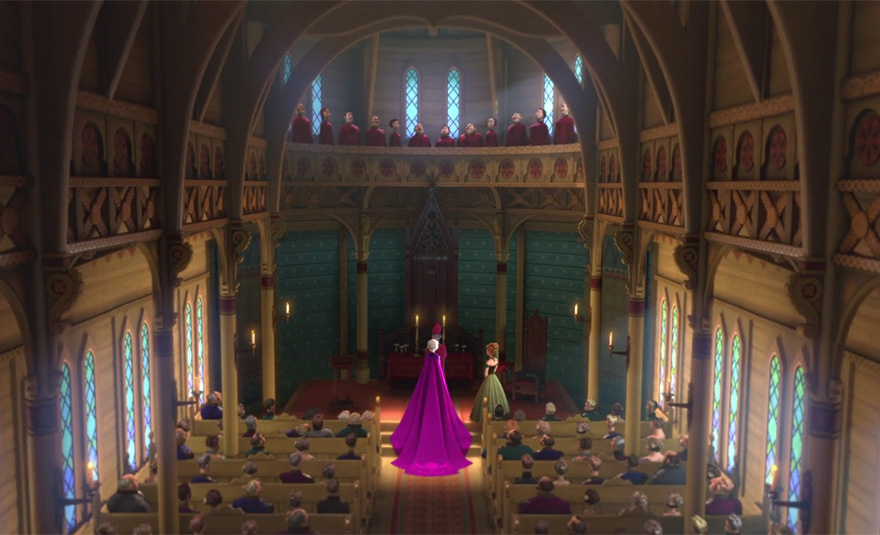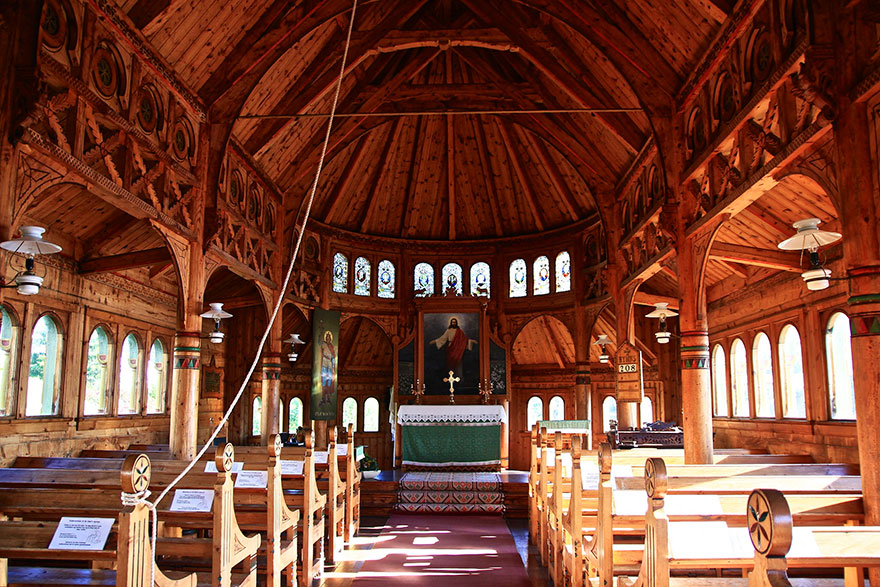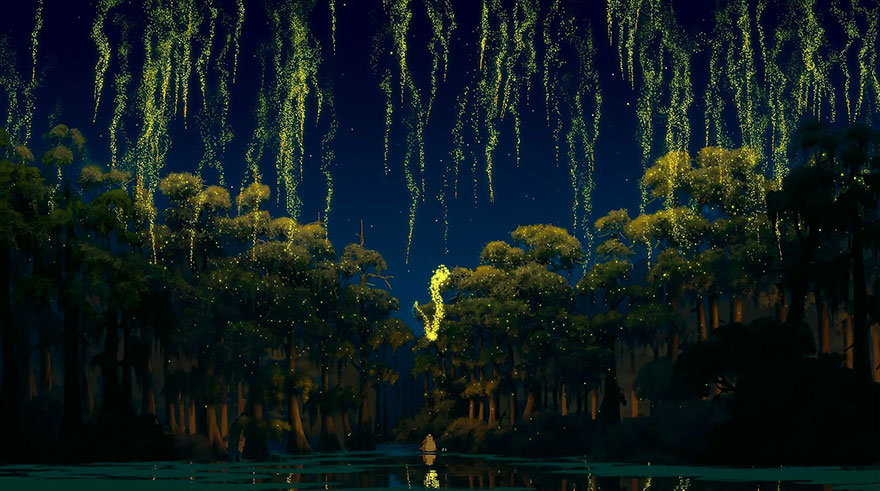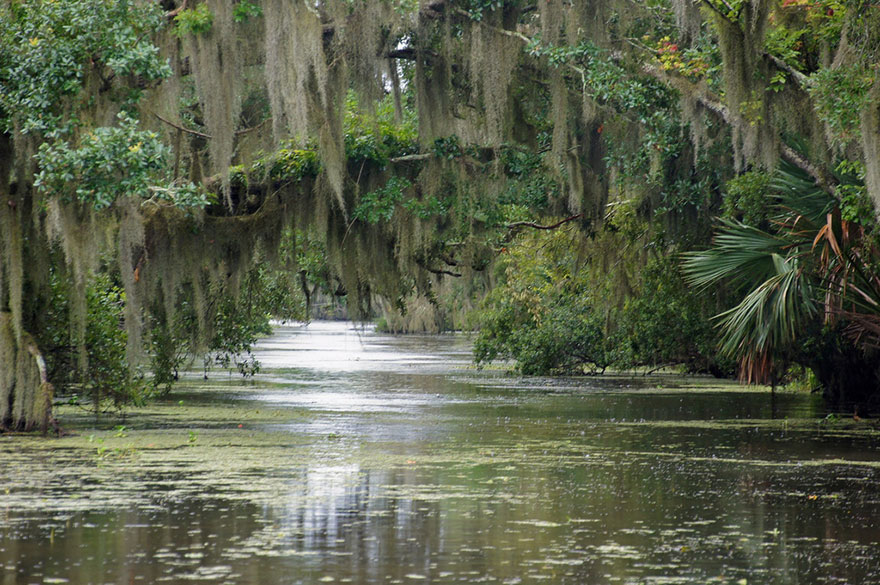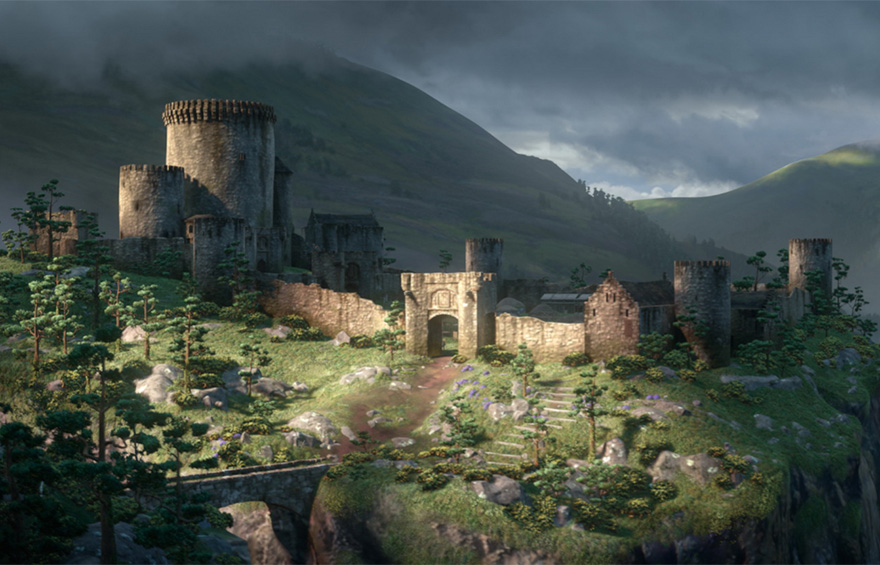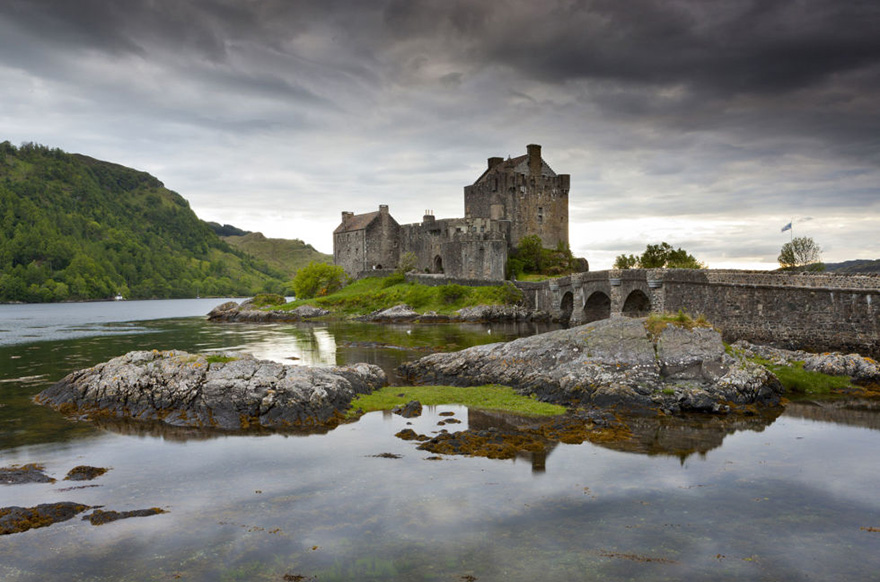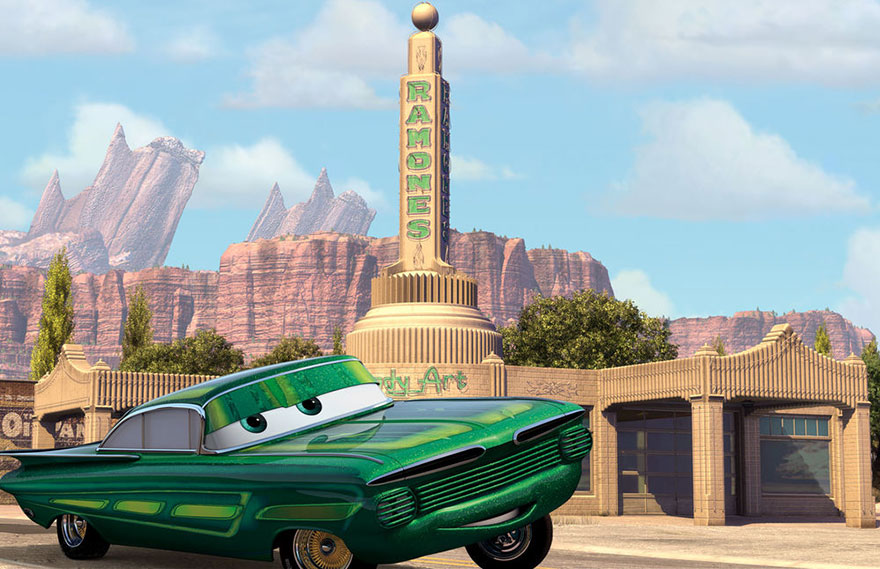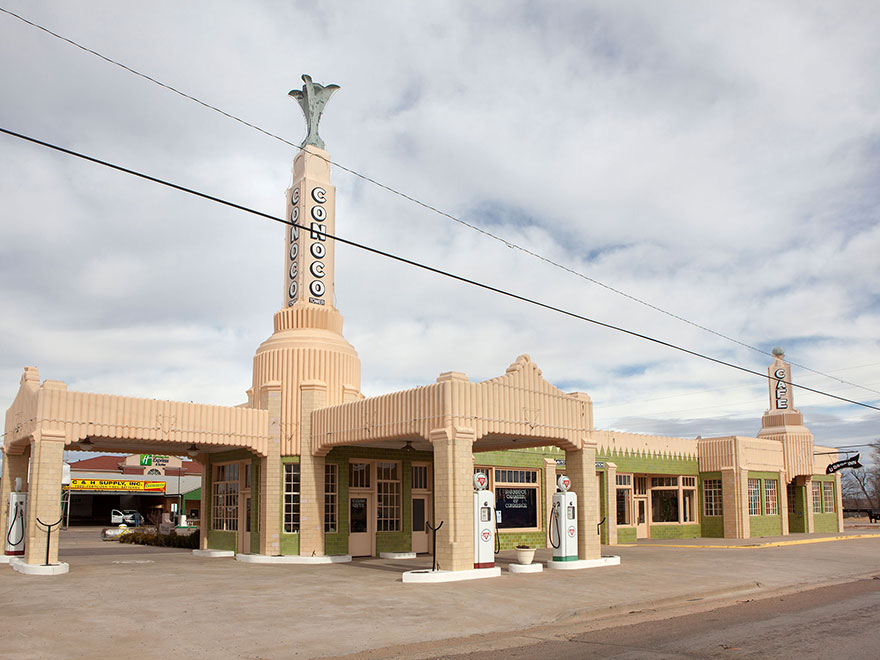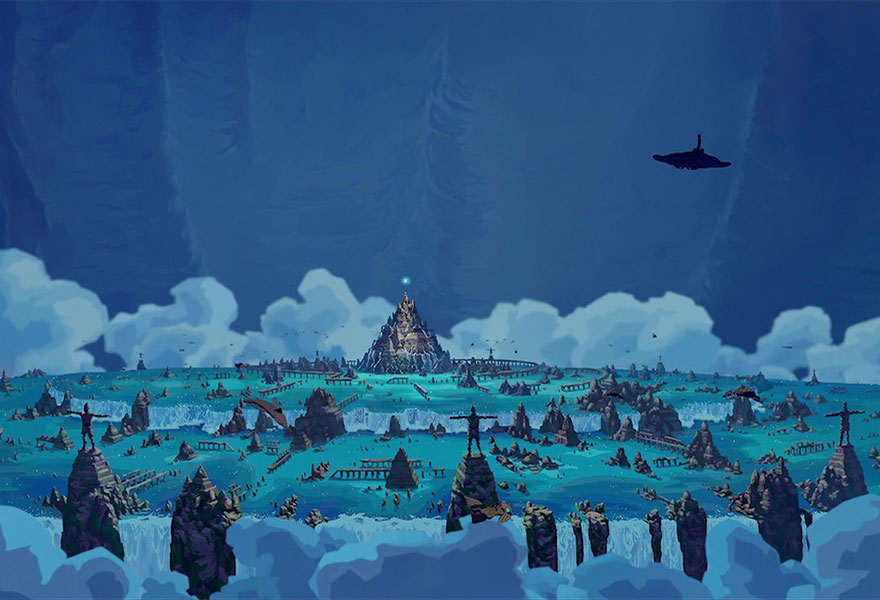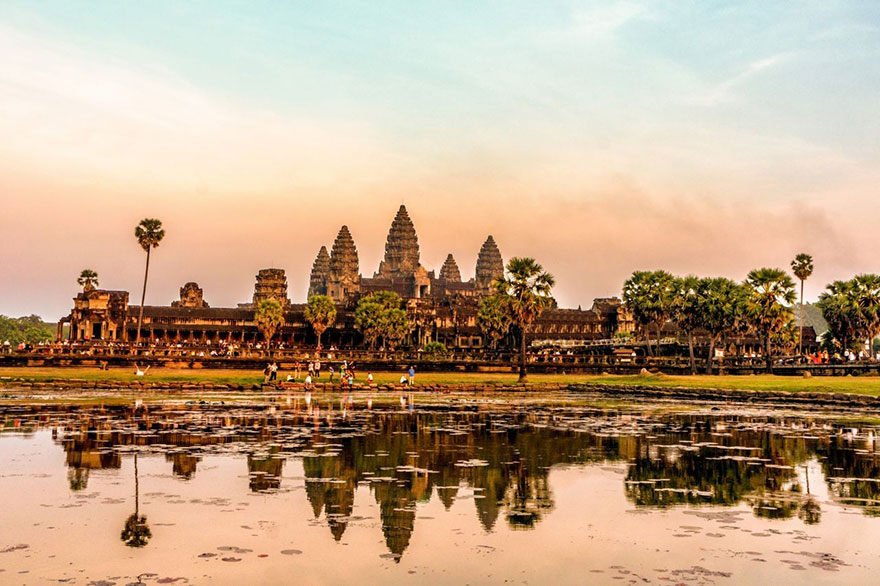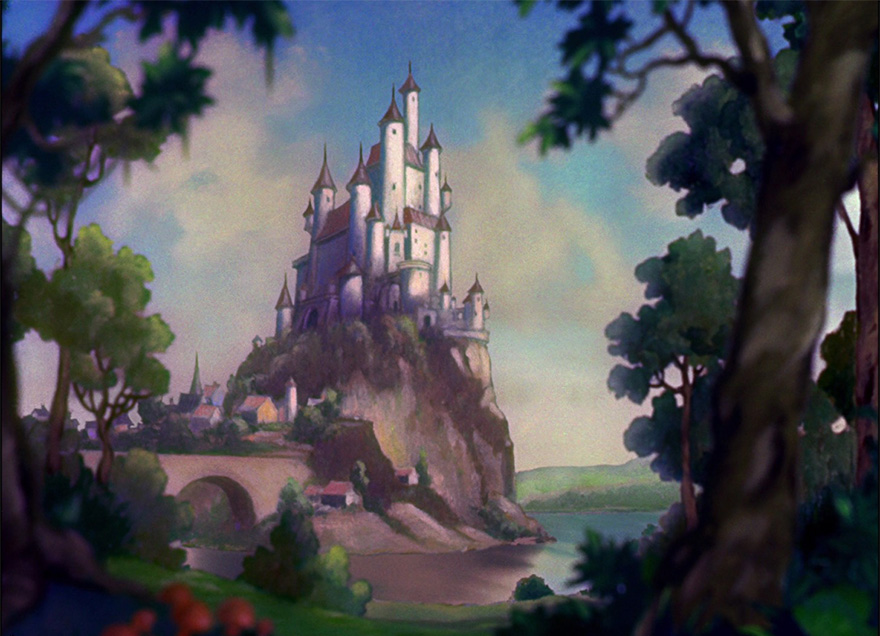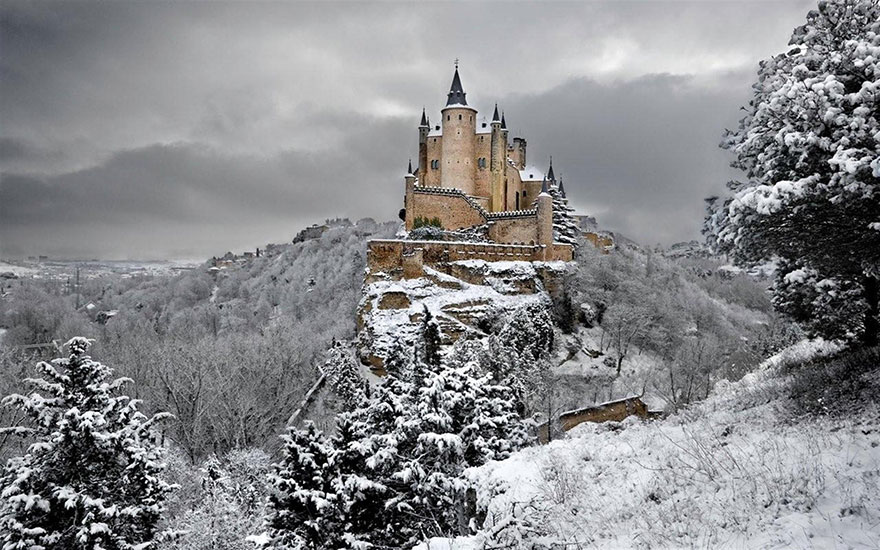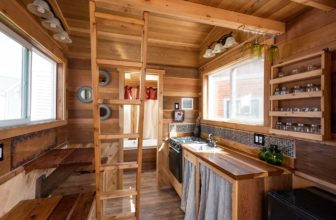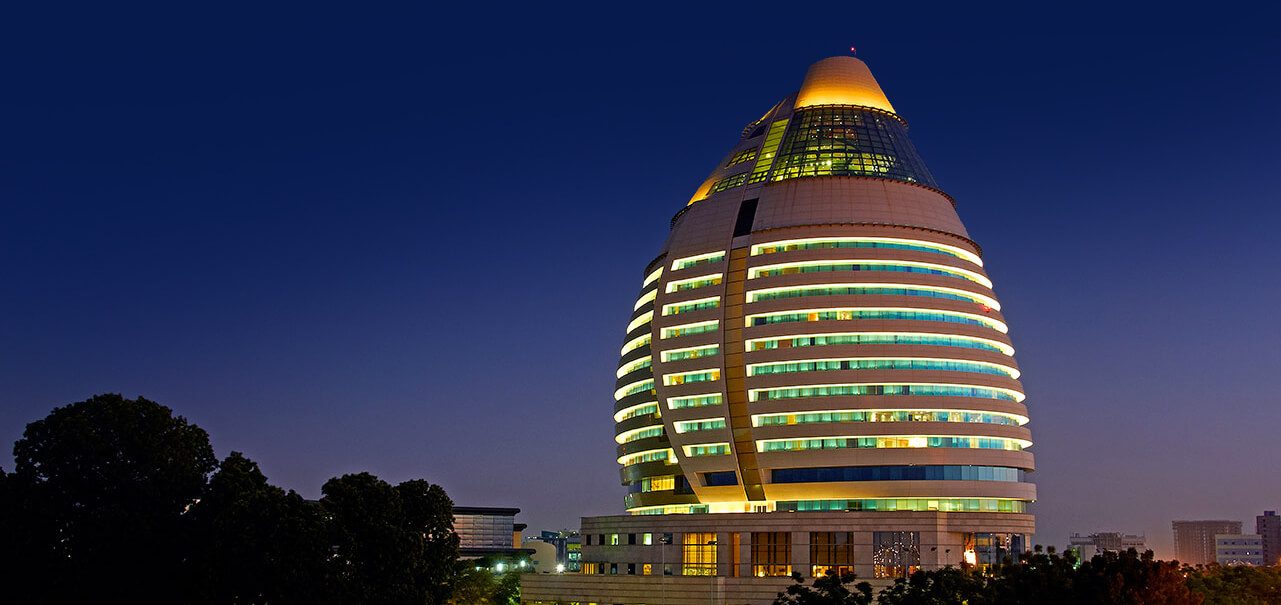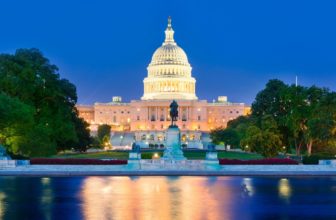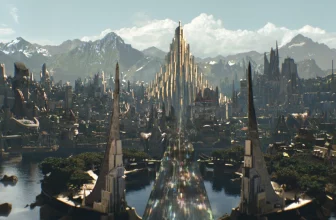Even though the lovely settings in our favorite Disney films are works of fiction, they are based on real-life locations. These photographs, which compare some of Disney’s most iconic locations with their real-life counterparts, will make you believe in magic!
The extent to which Disney’s artists drew inspiration from these real-life sources varies, but for the most part, the link is clear. The references to real-life castles were all the more fitting because some animated Disney movies were based on existing traditional fairy tales.
20 Disney Movies Inspired by Real-Life Locations
-
Beauty and the Beast: Alsace, France
This little village square in the Beauty And The Beast fairytale where Belle sang around was inspired by Alsace, a beautiful region in North-West France that was politically German for most of Europe’s history. As a result, it has a mix of these two civilizations, as evidenced by the names of many sites and, especially, the region’s lovely pastoral architecture.
-
Sleeping Beauty: Neuschwanstein Castle, Bavaria, Germany
Ludwig II of Bavaria built this castle in 1892 as a personal retreat and a monument to his favorite composer, Richard Wagner. Neuschwanstein Castle was the primary inspiration for the design of Disneyland’s Sleeping Beauty Castle (and the parallels are striking), and its architecture is also reminiscent of Cinderella Castle in Disney World!
-
Tangled: Mont Saint-Michel, France
The Kingdom of Corona in Tangled in Normandy, France, was inspired by Mont Saint-Michel. Tidal waters cut this one-of-a-kind island hamlet off from the mainland on a regular basis. This made it a suitable location for a fortified cloister because it was easily defendable. It is now a renowned tourist destination due to its remarkable look and picturesque surroundings.
-
Ratatouille: Tour d’Argent, France
The late-16th-century French restaurant ‘La Tour d’Argent’ is famous for its views over Paris, which inspired the animated film Ratatouille. The restaurant is at the very center of Paris in every way, and is a favorite haunt of royals and celebrities, as much for its signature dishes as for its spectacular view of Notre Dame.
-
Beauty and the Beast: Château de Chambord, France
Another French feature that made an appearance in Beauty and the Beast as the Beast’s Castle is the Château de Chambord. It was built as a “hunting lodge” by King Francis I in 1547. Many people have said that the building’s unusual roof, which features a genuine forest of chimneys and spires, seems more like a city or town skyline than a palace.
-
Up: Angel Falls, Venezuela
Angel Falls (also known as Kerepakupai Vena in the indigenous Pemon language) in Venezuela inspired Paradise Falls in Up. It is the world’s highest waterfall, with a continuous drop of 979 meters (3,212 feet). It comes from the Auyantepui mountain range in Venezuela, which is one of several table-topped “tepui” ranges.
-
Aladdin: Taj Mahal, Agra, India
The Taj Mahal in Agra in India inspired the Sultan’s Palace in Aladdin. Many people mistake the Taj Mahal for a castle, but it is actually a magnificent tomb that Emperor Shah Jahan began building for his beloved wife, Mumtaz Mahal, in 1632. White marble encases the mausoleum, which is flanked by lovely gardens.
-
One Hundred and One Dalmations: The Regent’s Park, England
Regent’s Park is one of London’s Royal Parks. Pongo and Roger Radcliffe encounter Perdita and Anita Radcliffe here for the first time in 101 Dalmatians. Pongo & Perdita used the “Twilight Bark” on top of “Primrose Hill” to alert other dogs when the Dalmatian puppies were kidnapped, and the Dalmatians subsequently met up with Danny when he had news on their puppies.
-
Mulan: Forbidden City, Beijing, China
The Forbidden City in Beijing, China, served as inspiration for the Emperor’s residence in Mulan. It was previously home to the Ming and Qing dynasties’ rulers and is now open to tourists. Because it was the emperor’s abode, no one could enter or leave without his permission, the vast palace was dubbed “Forbidden.”
-
The Hunchback of Notre Dame: Notre Dame Cathedral, Paris, France
The Notre Dame Cathedral in Paris was used as the cathedral in The Hunchback of Notre Dame. One of the most well-known examples of Gothic architecture in the world is the magnificent and towering cathedral. It took over 200 years to complete and was one of the first buildings in Europe to incorporate flying buttresses, which were added after architects noticed that the higher walls were buckling beneath the weight of the structure.
-
The Little Mermaid: Chateau De Chillon, Lake Geneva, Switzerland
Chateau De Chillon on Lake Geneva in Switzerland was the inspiration for Prince Eric’s castle in The Little Mermaid. The chateau was built during the Roman Empire to protect a path through the Alps. The since-updated castle is not just lovely in and of itself, but its location on the banks of Lake Geneva makes it the ideal fairytale setting.
-
Wreck-It Ralph: Grand Central Terminal, New York City, USA
Grand Central Terminal in New York City was the inspiration for Game Central Station in Wreck-It Ralph. In 1913, the terminal was demolished and rebuilt in the current design. Despite bomb threats, the famous station is still operational.
-
Frozen: St. Olaf’s Church, Balestrand, Norway
St. Olaf’s Church in Balestrand, Norway, served as inspiration for the Chapel in Frozen. It was also known as the English church because Margaret Green, an Englishwoman who resided in the neighboring highlands with Knut Kvikne, the man she fell in love with, started construction on it. Though she stayed with him, she was also quite religious, and she joined him in building the church so that she could exercise her Anglican beliefs. Regrettably, she died before it could be completed.
-
The Princess And The Frog: Louisiana bayous, USA
The bayou of New Orleans in Princess And The Frog was inspired by the state of Louisiana’s real-life swampy lakes, marshes, and slow-moving rivers. Alligators, catfish, and turtles inhabit the bayous, inspiring terrifying tales of hungry supernatural swamp beasts.
-
Brave: Eilean Donan Castle, Scotland, UK
Eilean Donan Castle in Scotland served as inspiration for the Royal Castle in Brave. Despite the fact that the existing castle on Eilean Donan (which means “island of Donnan” in Gaelic) was built in 1932, the island has a long history. In the 6th or 7th century, it was claimed to have been the site of a monastery, and it later became the seat of a castle that safeguarded the Mackenzie clan.
-
Cars: U-Drop Inn, Shamrock, Texas
U-Drop Inn in Shamrock, Texas was the inspiration for Ramone’s House of Body Art in Cars. A nail stuck in the ground, of all things, inspired the strange inn. The inn shuttered after Route 66 was decommissioned and fell into disrepair. It is now a national art deco architectural landmark as well as a Tesla electric vehicle charging station.
-
Atlantis: The Lost Empire: Angkor Wat, Angkor, Cambodia
Angkor Wat at Angkor, Cambodia, served as inspiration for the city of Atlantis in Atlantis: The Lost Empire. Despite the fact that Atlantis is based on a mythical drowned Greek island that may or may not have existed, its artistic inspiration is unmistakable. In the 12th century, Angkor Wat was repurposed as a Buddhist temple complex after beginning as a Hindu temple. In any event, it is the world’s largest religious monument!
-
Snow White: Segovia Castle, Spain
The Alcazar of Segovia, a castle in central Spain, inspired the Queen’s castle in Snow White. It was used by numerous Spanish monarchs for hundreds of years until it was extensively damaged by a fire in 1862. It is built on a cliff at the junction of two rivers, giving it the shape of a ship’s prow.


